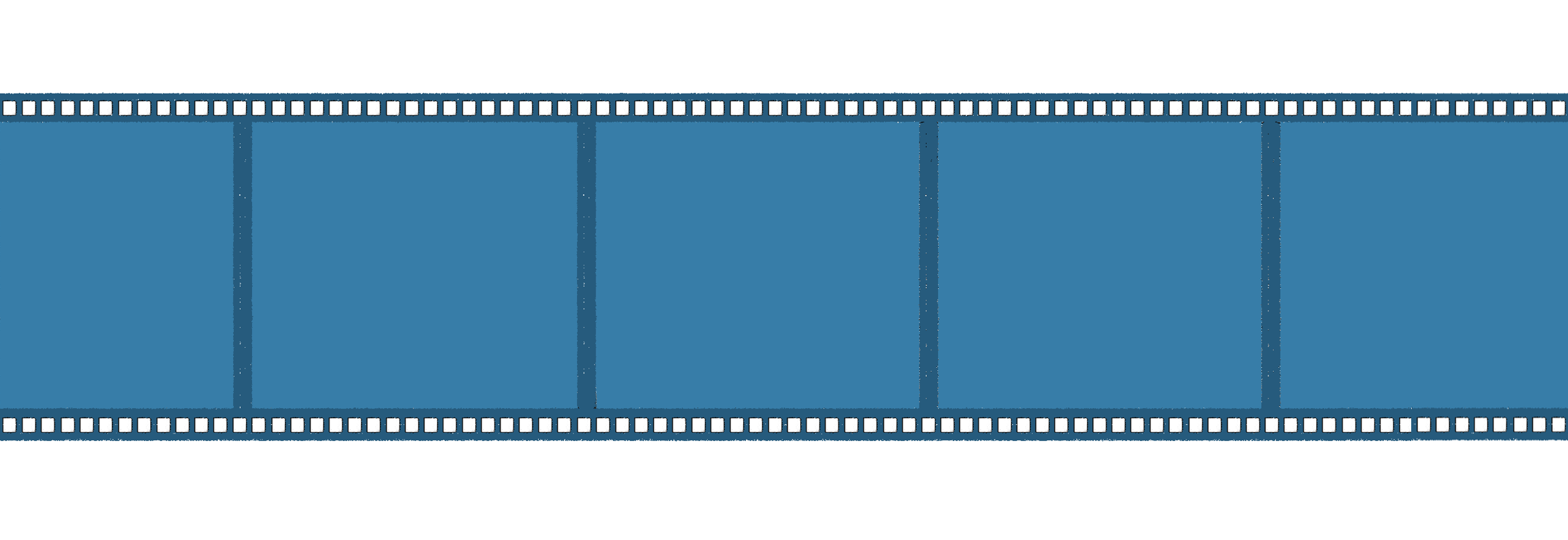Lights, Camera, Confidence!
Video Interview Prep 101
Have you been tasked with producing an internal video series? Or have you been put in charge of hosting interviews with colleagues for a big project? If so, this assignment may have come along with a few nervous-yet-excited butterflies… we’ve all been there! However, we‘re here to equip you with the tools you’ll need – not just to survive, but to THRIVE – in this interviewer spotlight, specifically for video-based interviews.
Why Video?
Quick backstory for this blog post: I was asked to present as part of ICology’s virtual 2-day event, Video Skills for the IC Stars (by the way, let’s have a brief “moment of appreciation” for Kristin Hancock’s creative branding and title for the event… Ready? Pause… okay, we can continue), where Internal Comms folks could learn about incorporating video into their employee engagement strategies. Given my background in communications, previous experience as a Features and Promotions Producer at the YES Network, and immense adoration for the ICology community (you, too, can join the community here), I agreed to speak – despite my on-camera nerves! – about the best way to prepare for a video interview.
But before we go any further… why video?

Video is no longer just a trend; it’s a powerful tool for internal communication. It allows you to:
- Capture attention and boost engagement: People are drawn to video, making it a surefire way to cut through the noise and get your message across.
- Showcase company culture, employee stories, and team dynamics: This fosters a sense of connection and belonging, increasing morale and productivity.
- Deliver complex information effectively: Video combines visuals, voice, and tone, making it easier for people to understand and retain information.
- Reach a wider audience and personalize your message: Videos can be shared across various platforms and tailored to specific audiences, adding a human touch to your communication.
Like it or not, video has forced itself into our world here. Let’s embrace it as an opportunity to connect with our employees deeper, driving engagement and creating a more informed, friendly, and productive workplace.
Challenge Yourself.
To get us in the right mind frame for this assignment, I have a challenge for you – a challenge to channel your inner Sherlock Holmes. Imagine approaching your next interview series with this question at heart:
“Everyone is the most interesting person in the world. Your job is to find out why.”
Disclaimer: This mindset isn’t just for video interviews. I try to apply this in my everyday life to see what I can uncover. Recently, I discovered that my Aunt Joanne, someone I’ve known forever, won a contest and met the Beatles years and years ago! How did I not know this?! Well, I just had never asked the right questions to unlock that bit of knowledge.
Now, picture the impact that such revelations could have in your next video series. Imagine if your CEO casually dropped a note about meeting The Beatles, sparking a chain reaction of music-loving conversations within your organization.
Get ready to uncover stories like this – stories worth sharing – one captivating conversation at a time. We’re diving deep into the wide world of video interviews, exploring all the tips and tricks you need – not just about asking the right questions, but about preparing yourself as a producer and preparing your talent, too.

Part 1: Interview Tips for the Interviewer
So let’s dive right in, producer! Below are some tips that will help set you up for success the next time you’re tasked with an interview assignment.
- Find your story: Do your research! Learn about your interviewee, their background, and their expertise. This will help you craft insightful questions and uncover hidden gems. Listen to old interviews when possible to understand their speaking style and cadence. Go beyond their resume.
- Craft your questions: For starters, lose any “yes/no” questions – those are immediate, definitive conversation-enders, and we want to encourage dialogue! Ask open-ended questions that promote storytelling and delve deeper than the surface. Make it easy to understand what you’re asking – don’t use confusing phrases or jargon to try and impress your interviewee. Plus, don’t ask the basic stuff that everyone already knows. Look for the “why” behind the “what.”
- Listen & Engage: Be an active listener. Show genuine interest, don’t interrupt their train of thought, and ask follow-up questions. “Follow the breadcrumbs” is a phrase that you can adapt for those follow-ups. Allow yourself to discover more significant and better stories along the way. Be open-minded to where the story may go; let their answers guide you. Use non-verbal cues to show you are listening and interested, such as nodding along or silently laughing or smiling. Make your interviewees feel like the stars they are. It’s important to show them some respect for their time and expertise.
- Think in soundbites: Think of how this will play out in the long run. Pay attention to critical moments and mentally mark them for future editing by listening for your “IN” and “OUT” moments while doing the interview. During the interview, consider how this will play out without context in the final product. By thinking of how it might work out on the editing side, you’ll know if you must rephrase any questions or ask additional follow-ups.
- Ensure your objective is met: Don’t be afraid to gently rephrase questions if you haven’t gotten the answer you need. You aim to capture their unique perspective and ensure you get what you need for the final piece. You’ll never regret asking someone to do the take “one more time,” – and you’ll always be kicking yourself later if you don’t ask.
- Ease the talent into the questions: Start with a softball question that gets them talking, but one that doesn’t necessarily feel like they’re just listing credentials – that can be intimidating and might make people tense up if they mess up something with a “right or wrong” type of answer. Begin the interview with an easy one to help instill some confidence – like a warmup comedian at a comedy show!
- End with a bang: Give your interviewee a chance to say their final piece. This empowers them and leaves them feeling heard. As my last question, I always ask, “Is there anything I have not asked you today that you want to share with me?” Your interview subjects expect how the interview will go, and they’ve envisioned themselves in the discussion or practiced saying something they wanted to get across. This is an excellent chance to allow them to say it rather than walking away and leaving them unfulfilled internally and feeling out of control.
I understand that not everyone loves being on camera. I’ve been on both sides of the lens, having done interviews on camera myself, so I know how nerve-wracking it can be for interviewees. That’s why I, as a producer, developed a few phrases to put people at ease and disarm any tension. These lines can work wonders whether they’re nervous, reserved, hostile, or even combative (it happens!). So, for all interviewers out there, here are some magic phrases to soothe those interviewee jitters:
- “My job is to make you look good, so I won’t do anything that puts you in a bad light.” It’s true. You’ll need to work as a team to make this interview successful.
- “This is just a conversation between me and you.” This levels the playing field, so they don’t feel the pressure of theoretically speaking to a massive audience; they should approach it as they would any one-on-one conversation.
- “If you don’t like how you started an answer, no prob! Just pause and restart.” The magic of editing and recording in the digital age – you don’t run out of camera film!
- “Hey – Remember… Have fun!” This one is my personal favorite, and you’ll hear me say it again and again and again as a producer. I say this right before recording because it shakes off that quick last hesitation of nerves and often forces both a smile and an exhale.
By offering encouragement and understanding, you can create a more comfortable and productive interview for everyone involved. Remember, a little empathy goes a long way.

Part 2: Prepping Your Interview Subject
Part of the job of being a good producer is to make sure your talent feels prepared heading into the appearance and even more confident leaving the interview. What about your statement, ‘My job is to make you look good, so if you don’t look good, then I don’t look good’? It’s time to learn a few tricks to make that promise even easier. Even the most camera-ready individuals can benefit from a bit of guidance.
Here’s what we recommend:
- Outline key points and questions: This helps your talent identify their talking points. Note: there are some instances where not sending over the questions is helpful, but it’ll help ease your talent and make them more trusting of you.
- Practice makes perfect: Encourage them to rehearse answers out loud (yes, even if speaking to nobody at the time) and anticipate different angles you might take as an interviewer.
- Delivery matters: Remind them to be engaging, relatable, authentic, and mindful of non-verbal cues. Tell them to be confident in their messaging.
- It’s okay not to know: Tell them not to force any answers and that it is okay to say, “I don’t know,” or to redirect the conversation to their area of expertise.
- Follow the “repeat after me” rule: Encourage your talent to repeat part of your question to start their answer. For example, they should answer the question, “What is your favorite animal?” with something like, “My favorite animal is _____.”
- Speak concisely: Soundbites are your friend! Help them craft memorable and quotable sentences.
- Encourage storytelling: Specific anecdotes are helpful to avoid speaking generally or vaguely. Plus, stories can sometimes be more compelling or convincing than facts.
- Take a breath: Offer pauses before questions and answers. This allows your talent a moment to collect their thoughts and deliver their best response.
Bonus Resource
Local Wisdom has created a takeaway guide for you, as a producer, to prep your talent and give them a one-stop-doc for all the information they’ll need! We’ve included a portion featuring some of the above suggestions to ensure they feel prepared.
A Few Final Thoughts…
One “gut-check” question in my career has become my North Star for all of my video features, so I’d love to share it with you all today.
Back in college, I was interviewing for a production job and was asked, “What does a good feature accomplish?” I admittedly fumbled the question at the time, spitting out something about how a good piece would keep the viewer’s attention. I didn’t get the job, but when I had a moment to speak to the executive producer to gauge his answer to that question, what he said stuck with me.
He stated that a good piece should educate, entertain, and evoke emotion.
I’ve carried this advice with me ever since, not exclusively for interviews but for any creative endeavor. So, the next time you’re tasked with a creative challenge, remember these three ingredients – they’re the secret sauce to leaving a lasting impression.
As we close out today, I’d like to leave you with one final tip: make this an enjoyable experience for your interviewee.
A positive attitude is contagious and will shine through in your interviews. If the vibes are “off,” then sometimes all it takes is a little shift in energy to break through. Once, my talent and I took a break to listen to a few upbeat tunes on Spotify before resuming the interview. At times, a little silliness can do the trick. Because remember, you should always…
…have fun!




